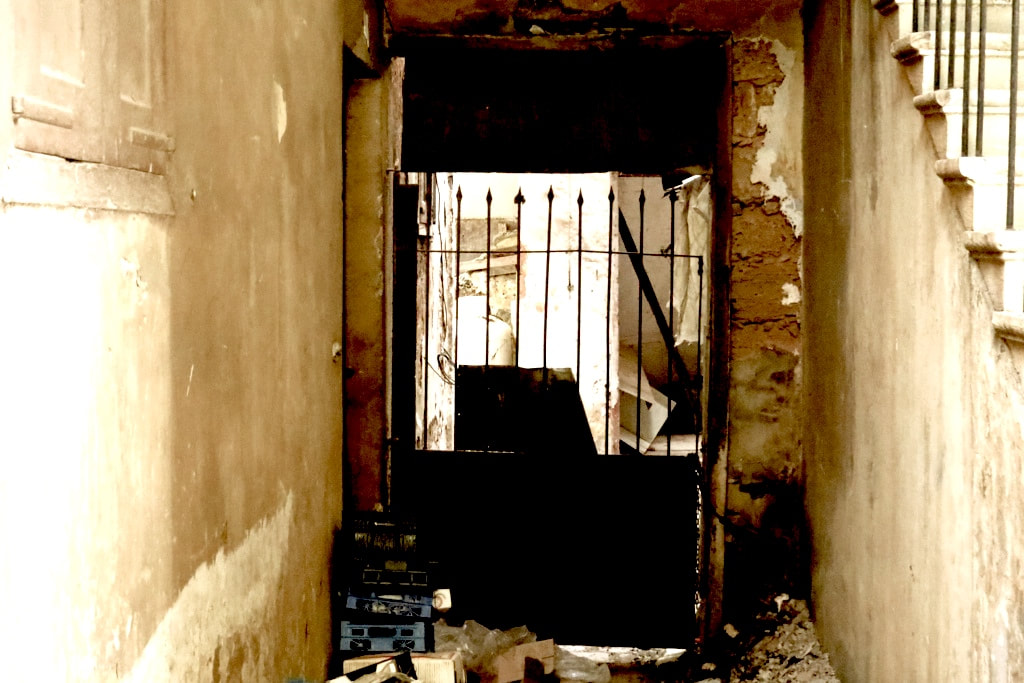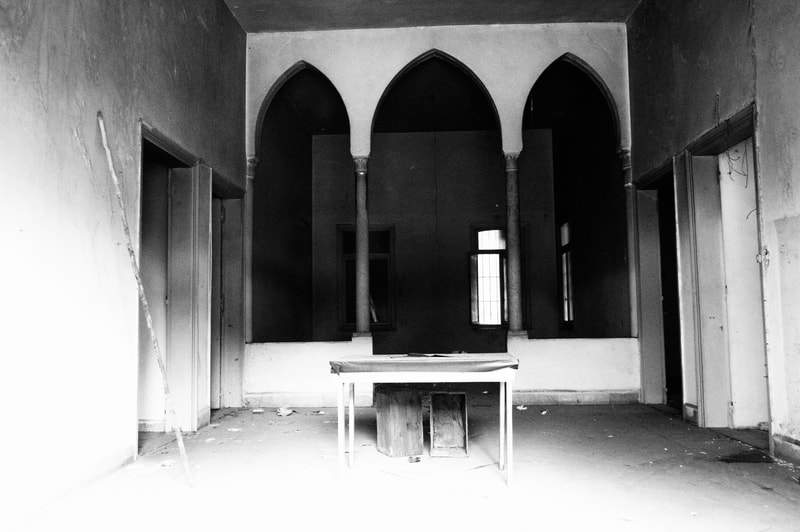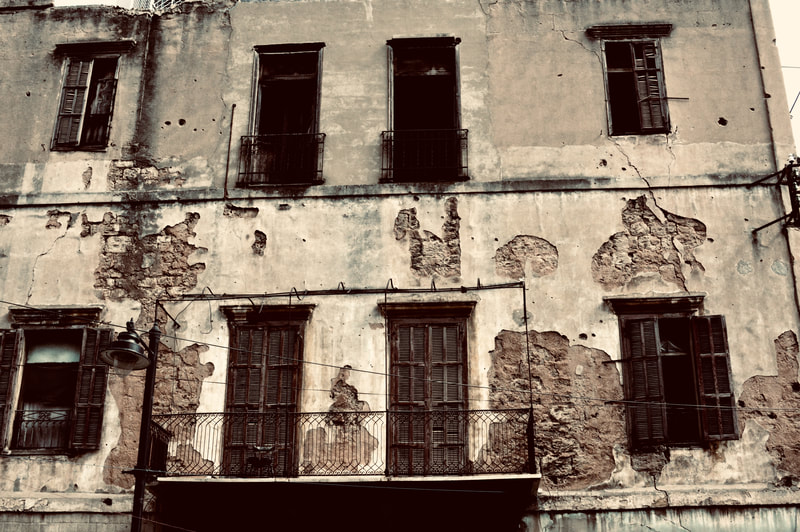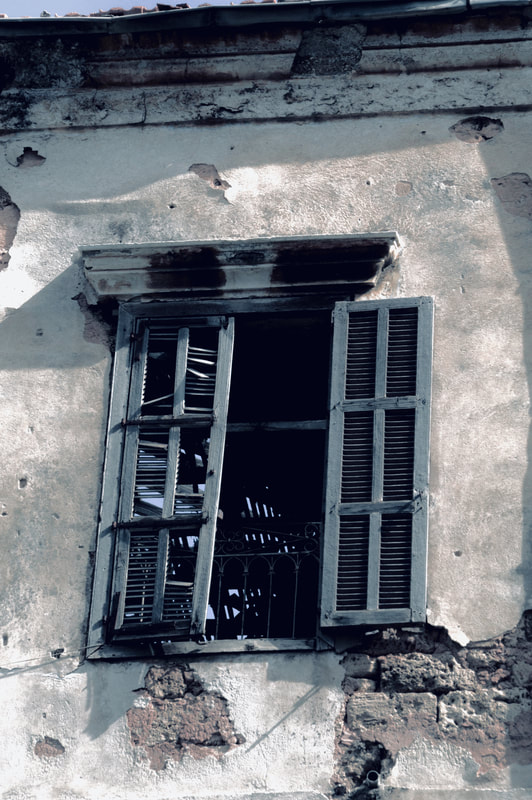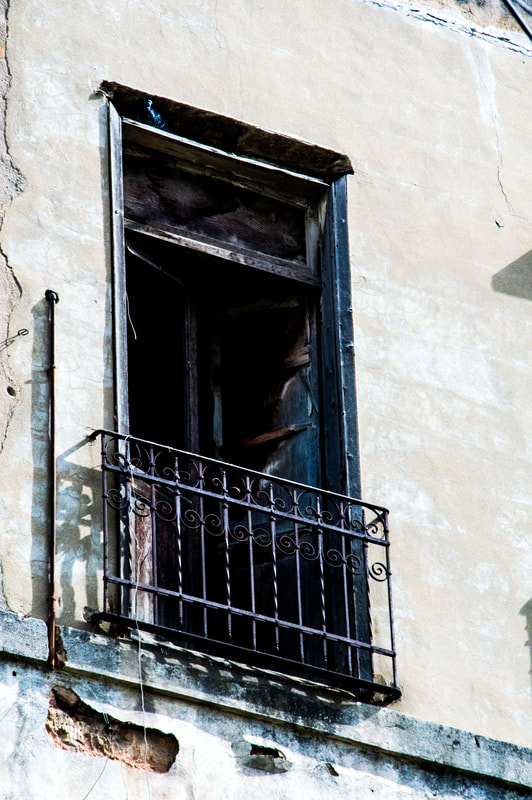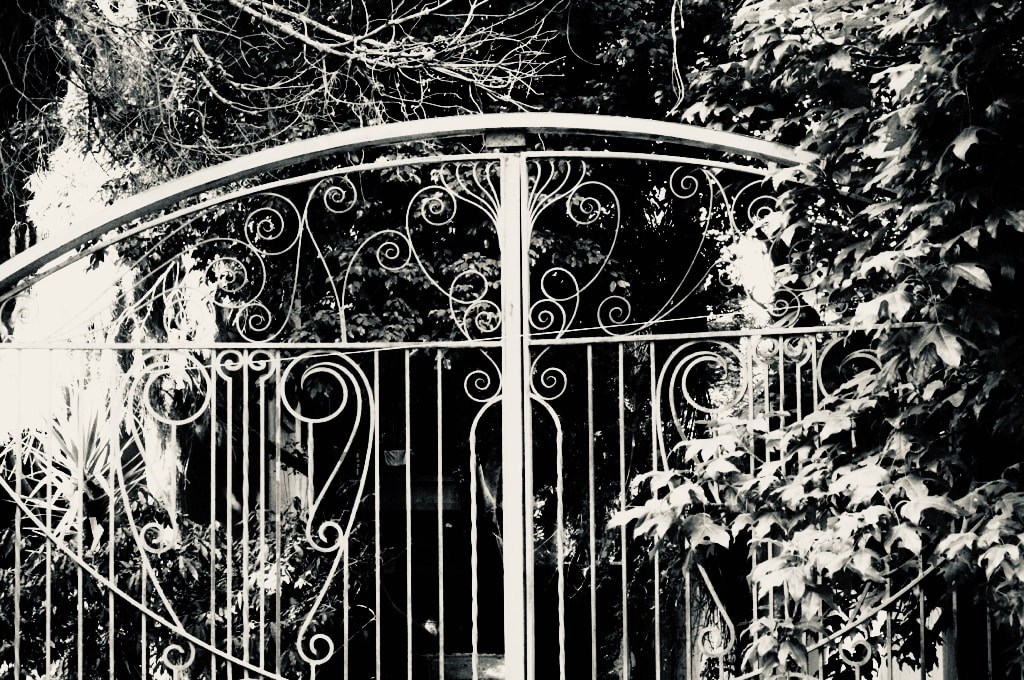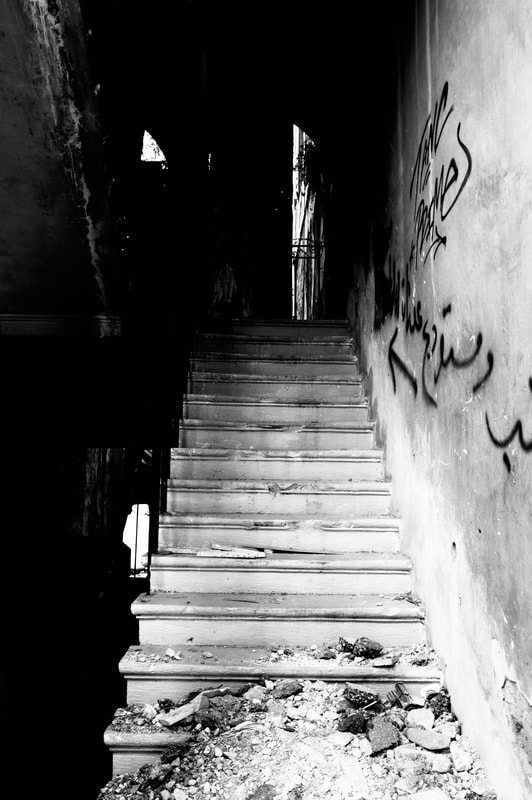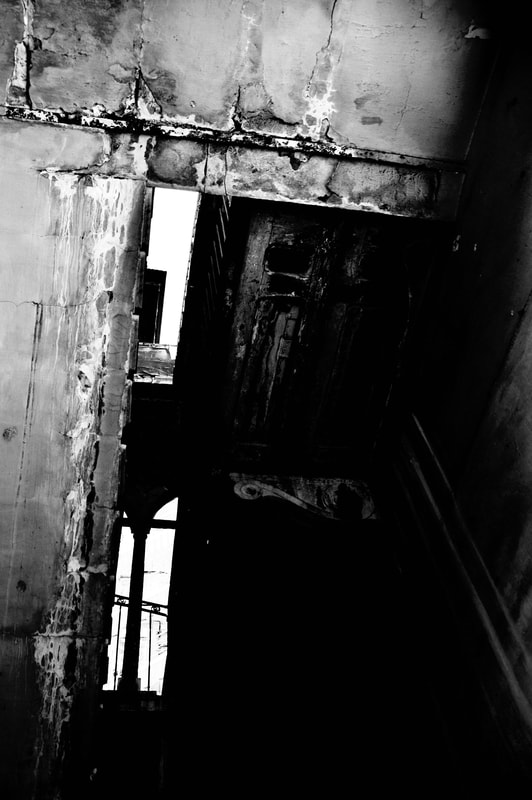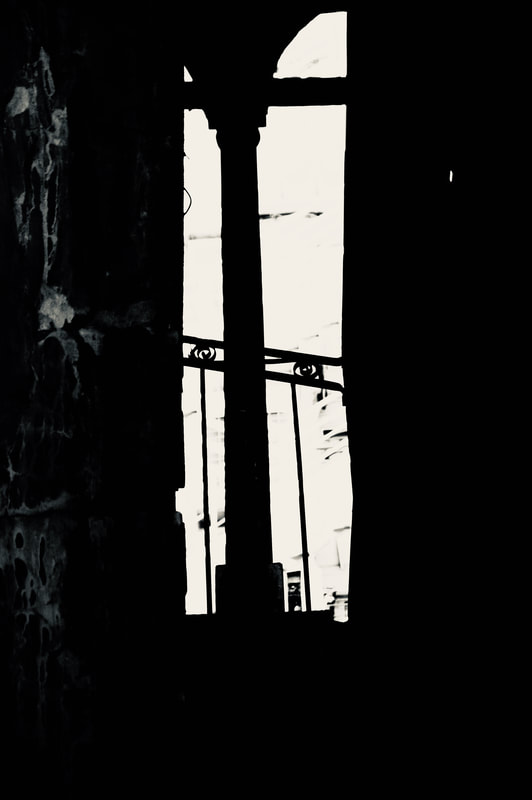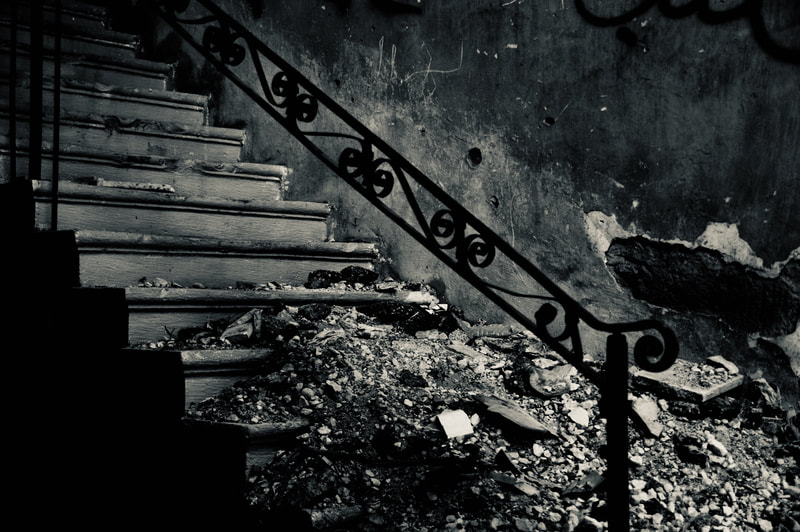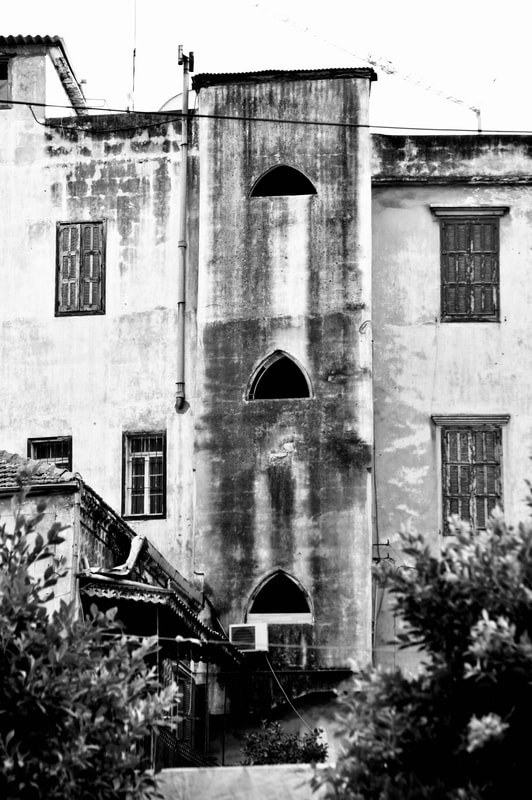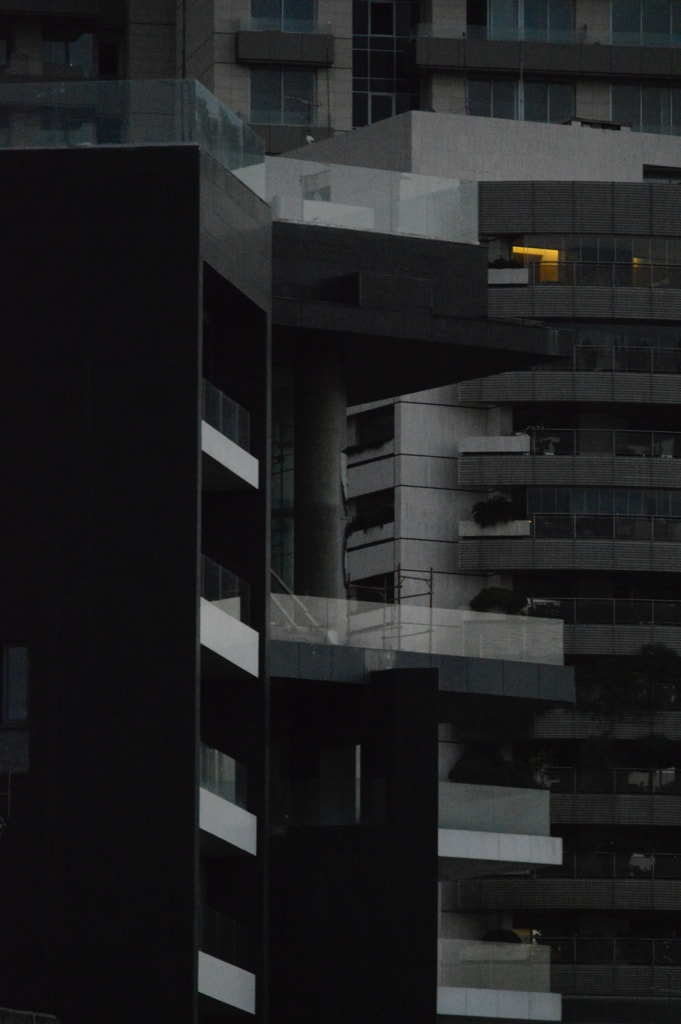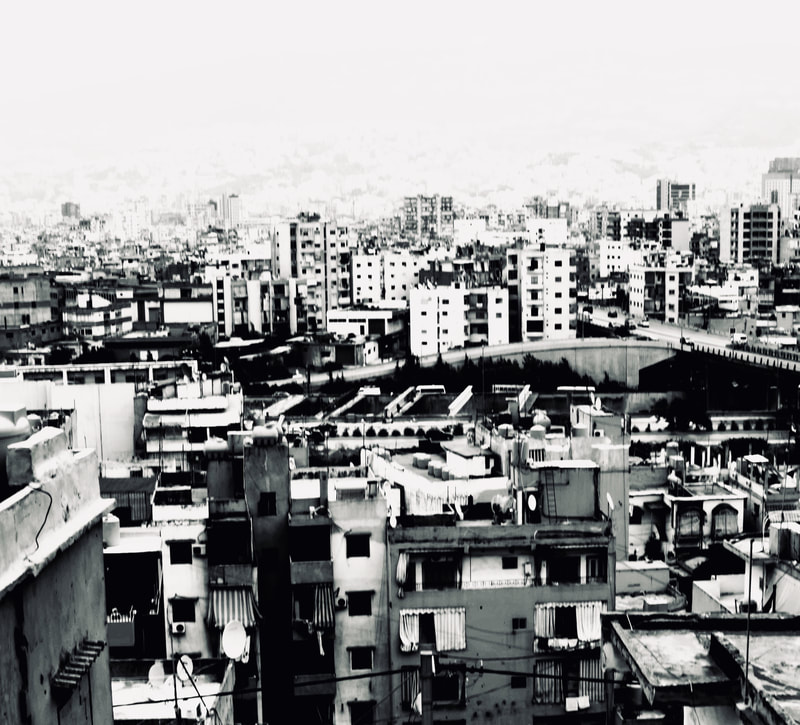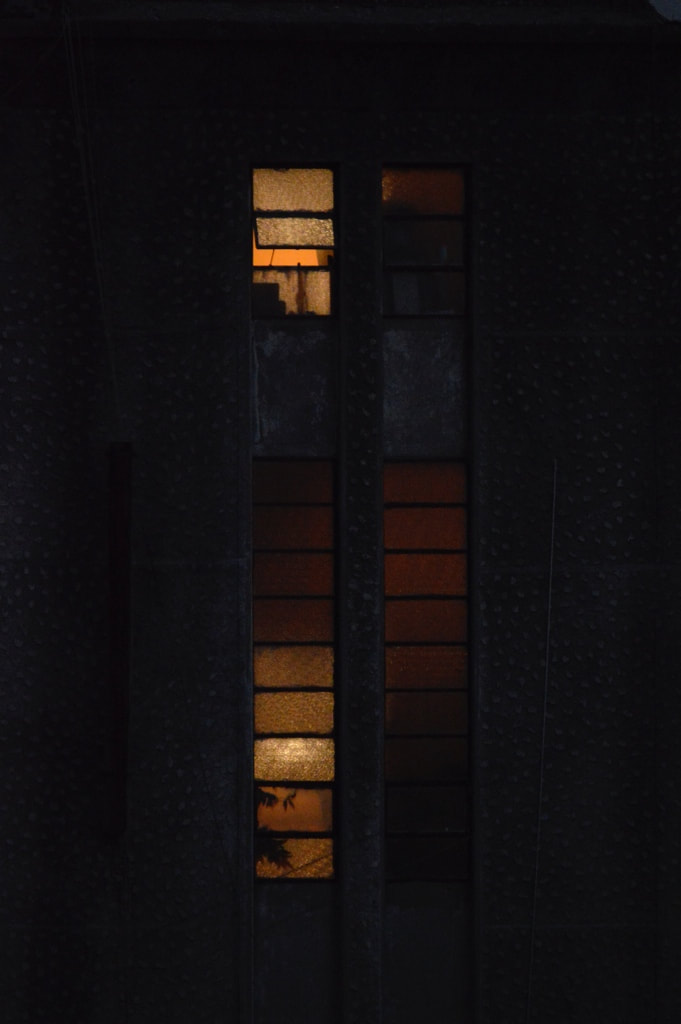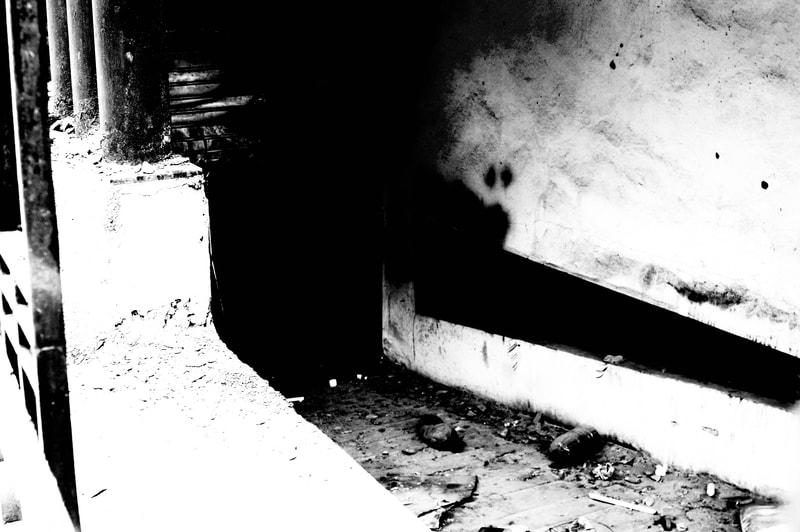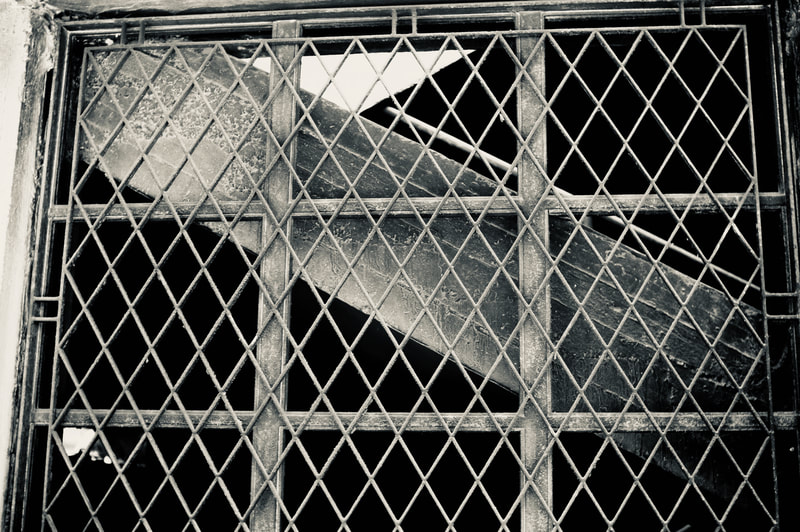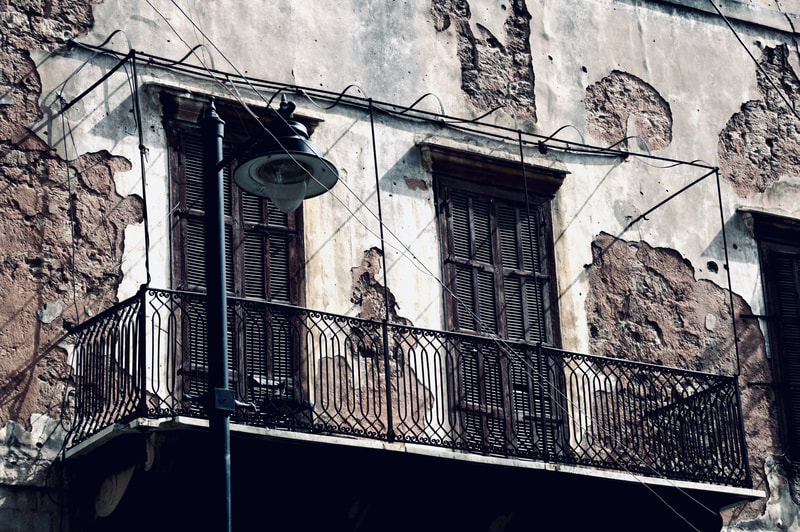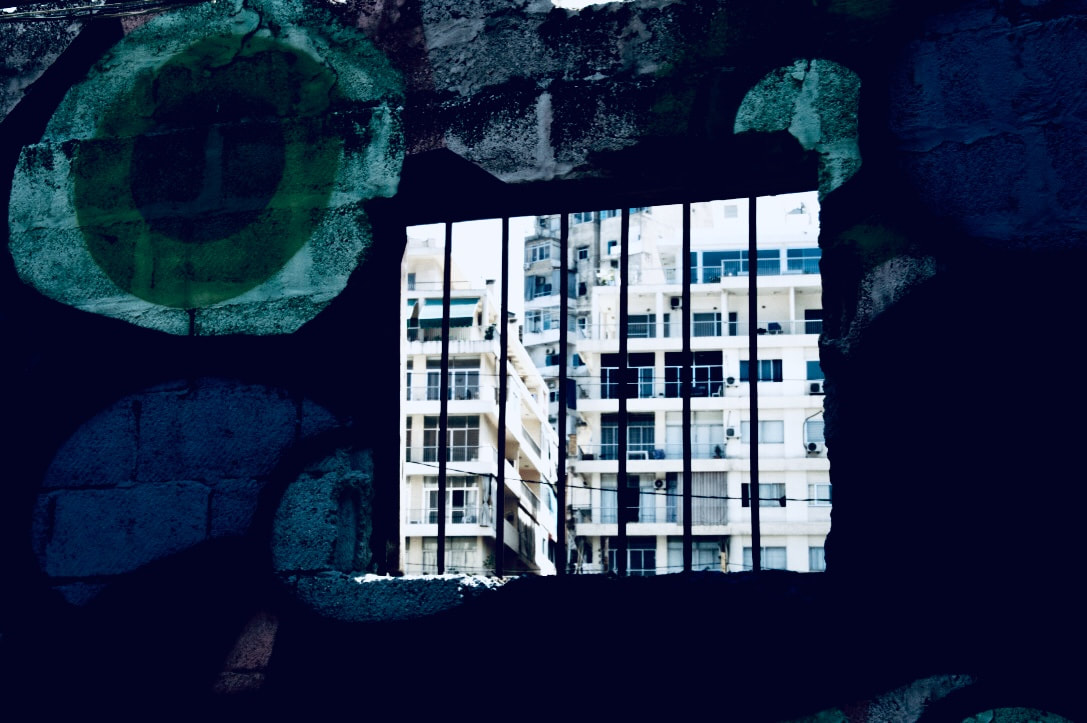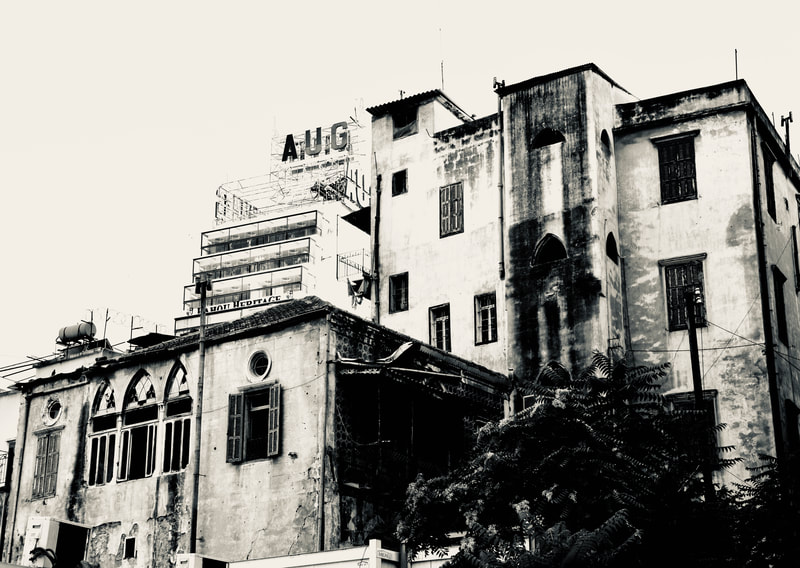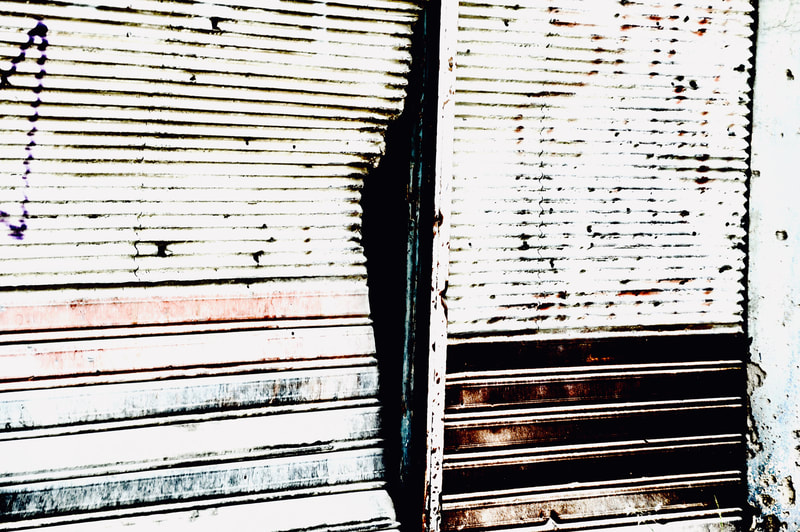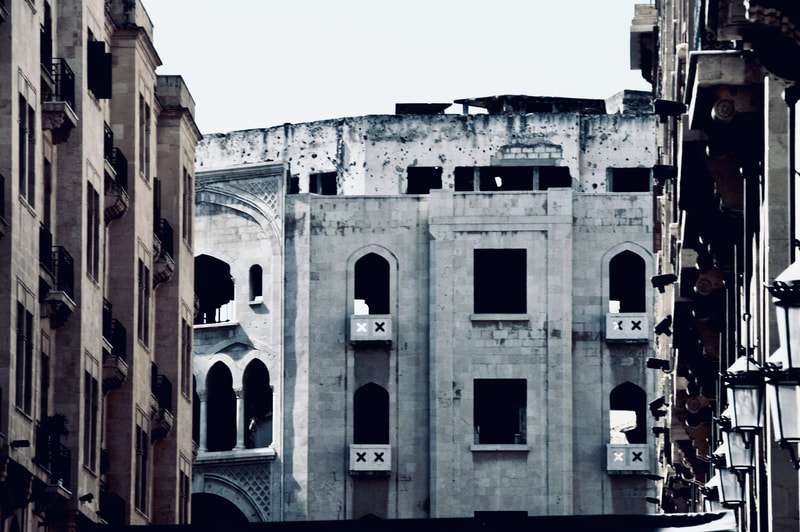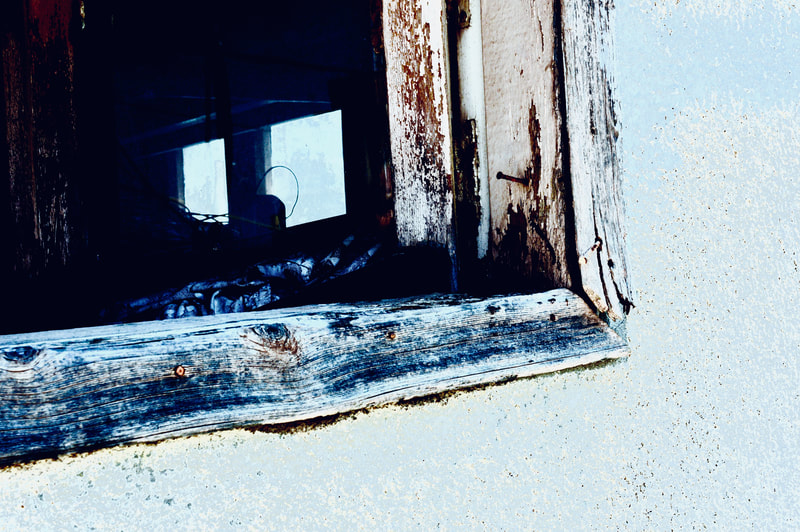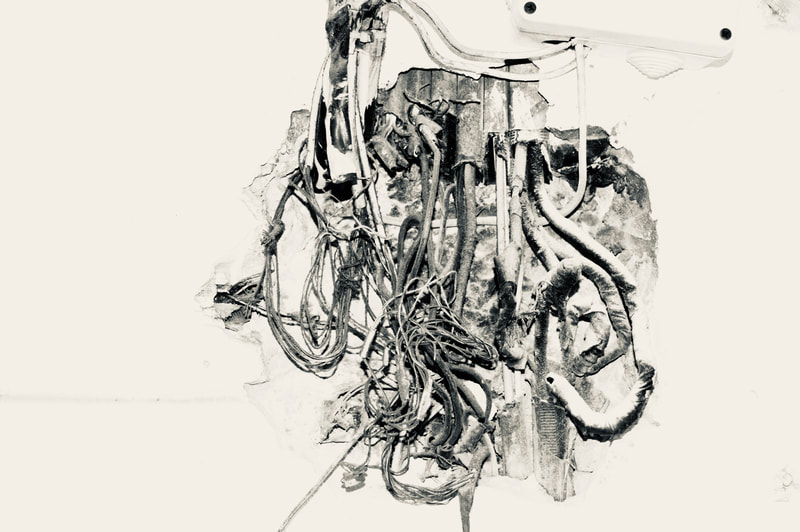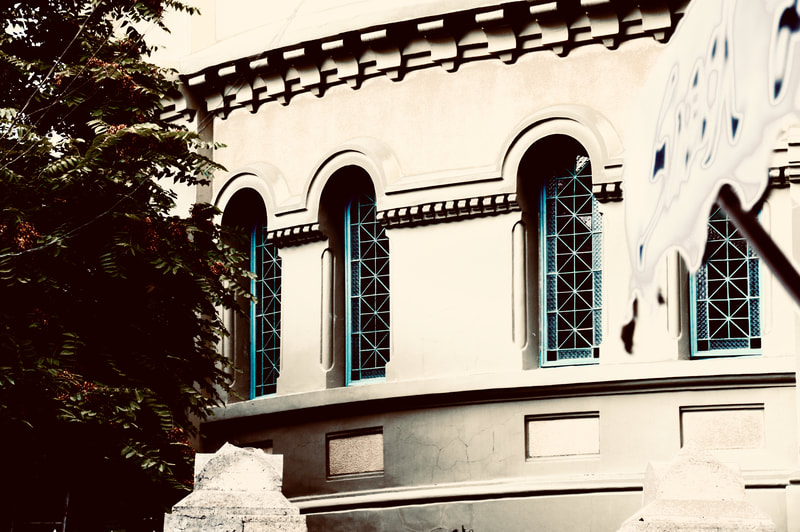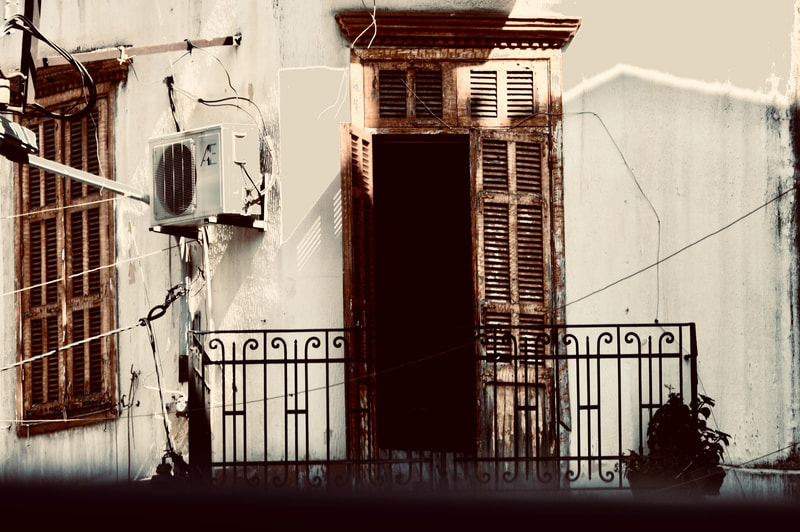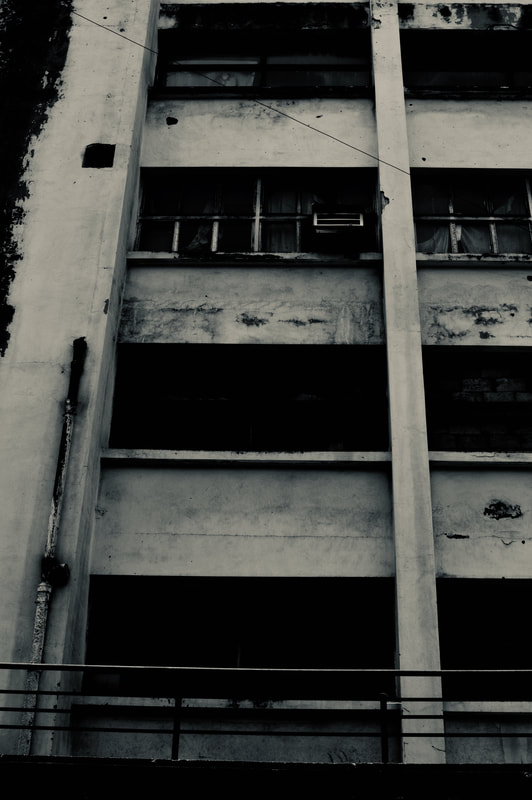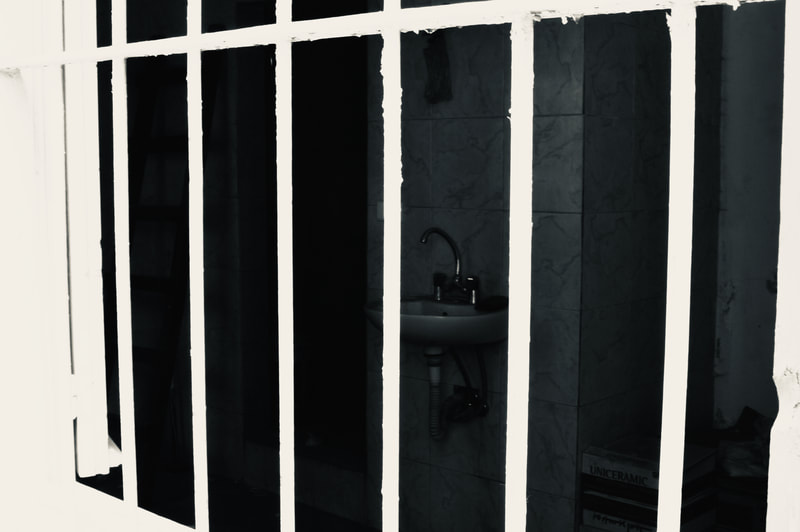Sometimes we find a place, a place that we have never been before, that touches our soul. A sense of place, a feeling of "coming home". This was my feeling when I first set foot in Beirut, in the dead of a winter's night in 2014, and the feeling never left. Although I am not "of there", for a rootless person it became one of my points of belonging. This project is an amalgam of genres, media - a collage of a place which is much misunderstood.
Dereliction...why am I obsessed by the decayed, the broken? Cities have souls, their memories locked away in their crumbling stones, in their overgrown corners. As buildings fall apart, they metamorphose. A phoenix risen from its own ashes. Faded grandeur; buildings once imposing in their opulence now altered in their disrepair. Light and shadows in an ever shifting dance to the music of time. Doorways yawn like chasms, windows blankly stare, balconies sag with weariness. The new stands boldly above them, haughty and proud. Yet they too are doomed. The shadows have started to creep into their angles, reminding them of their finiteness. The abandoned chuckle quietly...you too will fall, will crack and creak. And in this, in the fabric of these edifices, breathes the city. The superficiality of newness is only a disguise. Eventually all will crumble, will add their remains to memory.
Memories of Hope: thoughts on a city in crisis - written August 2020 after the Beirut port explosion
February 2014. The first time I saw Beirut. I was there to research an ongoing art project about migration and was full of excitement. Months of research had preceded this; cramming my head full of history and the socio-economic situation in the country. The reality of it was far from what I was prepared for, nor did I know that it would be such a major part of my life from that day forward.
It was three weeks ago, a few moments now receded into the shadows. An explosion which lit the tinder of frustration, igniting the fireworks of the city again. But as quickly as it flared, it died down, its sparks extinguished by apathy, despair, and more enforced confinement in the face of a pandemic which defies politics and religion. The ghosts and the dust have settled. But the city will survive. It will rebuild itself as it always has and, as before, tragedy will be used as an excuse to turf out the undesirables as it erects more shining empty pantheons to greed. Another neighborhood’s soul will die. Such is life everywhere, but life is cheap.
We encounter places along life’s journey which we love despite ourselves. No words, no reason, can answer the “why”, yet our hearts are forever doomed to dwell in their crumbling walls, belonging yet not belonging, occupying a strange limbo of being. For me, the city’s flaws are its beauty, its weaknesses its strengths. When people talk of the glittering places of Beirut, bland and stinking of a sameness seen in a million others around the globe, I don’t recognize the place I love. The place I love is dirty and rundown, wild and untamed. Derelict doorways open onto forgotten rooms. Elegant windows hide lives quietly lived. Ordinary yet extraordinary lives. For it is the people who make a place. Not the great and the famous, but the ones whose names are not heard, whose faces we do not recognize. People like the ones whose lives were ripped from their loved ones by a sudden blast on that August day.
The port always features in my memories, haunts my dreams. My first apartment; one side looking out over the water, the other to the busy streets of Gemmayze. Even at the height of summer a cool breeze blew through it, as if the sea was trying to escape into the city. My first kiss with the man I did not know would one day be my partner; the port looming outside, its sounds floating up like steel winged butterflies echoing at the window. Even when I ran to try and find peace after my own tragedy, high into the hills looking imperviously down at the city below, the port was there. Each night I watched it recede into darkness, every morning it reemerged in the dawning light of the new day. It was my muse. I gazed upon it as I tried to turn my jumbled thoughts into words. Now, as I look at the pictures of the destruction, it seems to have simply decayed, rapidly as if time sped up. It seems heartbreaking but inevitable. These ruins have become the symbol of a battered and lost Lebanon, exemplifying everything that is wrong with the country, but it could be the symbol of hope. It is in ashes and from those ashes the phoenix can rise.
Hope is fragile and so easily lost. I see Lebanon like a battered spouse; hating its abuser but feeling powerless. Afraid of what lies outside, afraid of the alternative. The reinvented warlords have kept the people cowed for so long, spinning lies like gold as they connive like thieves. No matter what they will be fine, running like rats to whatever tax haven holds their ill-gotten gains, cloaking themselves in gaudy finery to disguise the ugliness of their truth. And the people who quietly live their ordinary lives will keep trying, not believing the lies but too tired to tell a new story. Yet that story is there, just waiting to be told, and can only be told by them. History, they say, remember our history. But history has gone. It is the past and the past is now a vampire, feeding on the living so that it would not die. It does not have to define us. Are we every mistake we ever made? Every regretted decision, every youthful indiscretion? So to can a country transcend its history, recreate itself from its memories and dreams. This future is the only place where we can find freedom. And just as dreams can become memories and flee from an airport gate, so to can memories become dreams, renewed hope in that future where power is reclaimed by the people and the city – in all its flawed yet beautiful glory – will rise from those ashes with gleaming wings, reborn again.
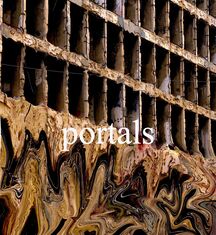
Doorways and windows obsess me. Portals leading from the outside in, and the inside out. They straddle the cusp of the delineation of spaces, existing both as the internal and the external. They are gateway through which we must pass on our constant journey between the interior and exterior self. They are apertures which both hide and reveal. They sit and view the world with unseeing eyes, yet hidden behind this blankness lies secrets and stories. The photographs for this series were taken in Lebanon from 2014 to 2018. Many, although not all, were in derelict buildings, and there is a crossover between them and the dereliction series. I see the two concepts - portals and dereliction - as symbiotic. These openings have seen turmoil and conflict, watched violence unfold around them with their unblinking gaze, yet also held or hold ordinary lives lived, and memories hidden.
